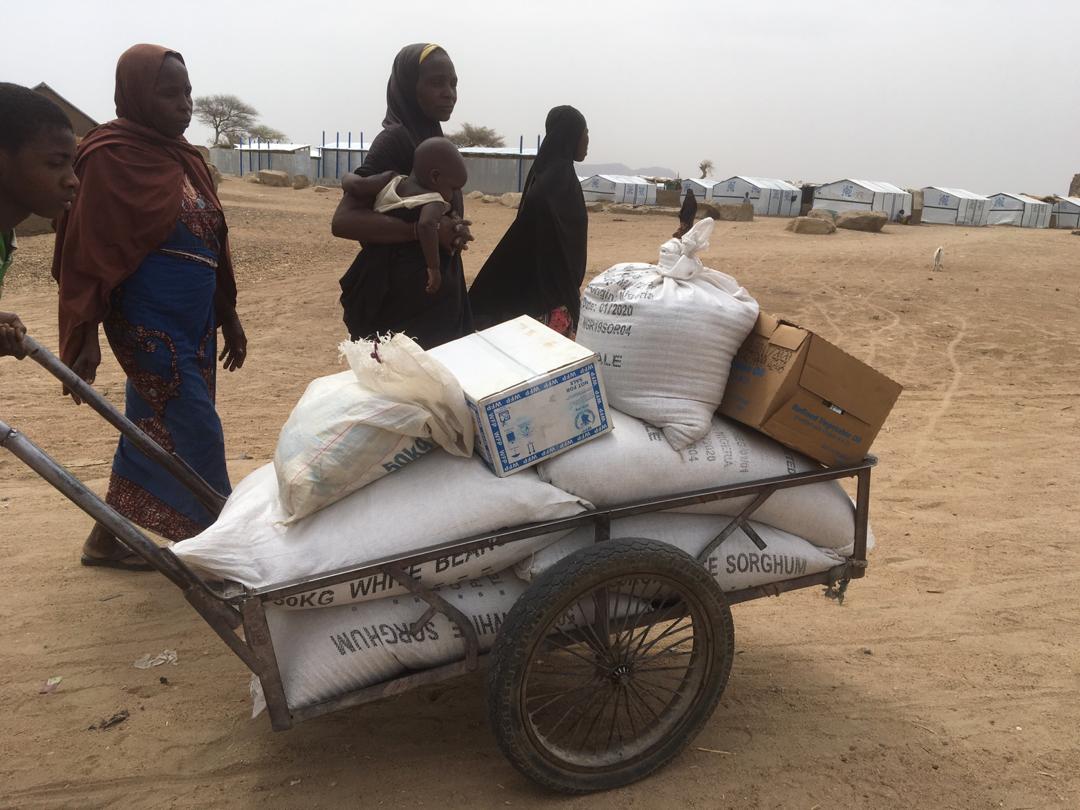Covid-19: Plan supports 28,000 impacted by insurgency in Borno
Plan International Nigeria has put forth donations to reach a total 28,724 individuals, mostly women and children, in Borno with food items to cushion the effect of lockdown measures. The lockdown was put up to stem the spread of Covid-19, which has reached Borno state and has entered a phase of community transmission. Since the […]

Three beneficiaries of Plan Nigeria food distribution on their way home in Monguno Borno state
Plan International Nigeria has put forth donations to reach a total 28,724 individuals, mostly women and children, in Borno with food items to cushion the effect of lockdown measures.
The lockdown was put up to stem the spread of Covid-19, which has reached Borno state and has entered a phase of community transmission.
Since the pandemic reached Borno, 125 people have tested positive for coronavirus. A total 111 people actively on treatment. The remaining 14 have died, figures from the Nigeria Centre for Disease Control show.
Borno’s case is peculiar considering it has been the epicentre of the Boko Haram insurgency in the last 10 years, which has unsettled livelihoods and driven millions of residents out their homes and into camps for displaced people.
“Coupled with the novel coronavirus pandemic, the conditions of children, girls and women have become grimmer,” said country director of Plan International Nigeria, Hussaini Abdu.
“Our focus therefore has been on those people who were already in unstable situation and whose situation is now more perilous as the COVID-19 pandemic adds to their level of vulnerability.”
Each beneficiary got 10.5kg of sorghum or millet, 3kg of beans, 1.5kg of cereal, 0.972kg fortified vegetable oil and 0.15kg of iodized salt.
The target is to reach 56,738 beneficiaries every month.
“We anticipate that in the face of the pandemic, the system already overwhelmed with responding to challenges of gender-based violence, malnutrition and poor livelihood amongst the internally displaced persons would come under more pressure.
“We therefore consider it appropriate to provide these citizens with food items, many of whom might not be reached by the government interventions.”
